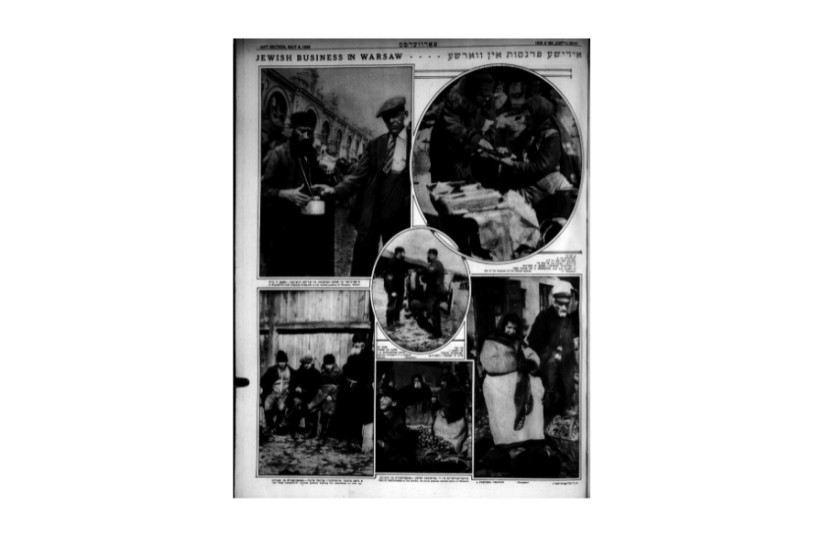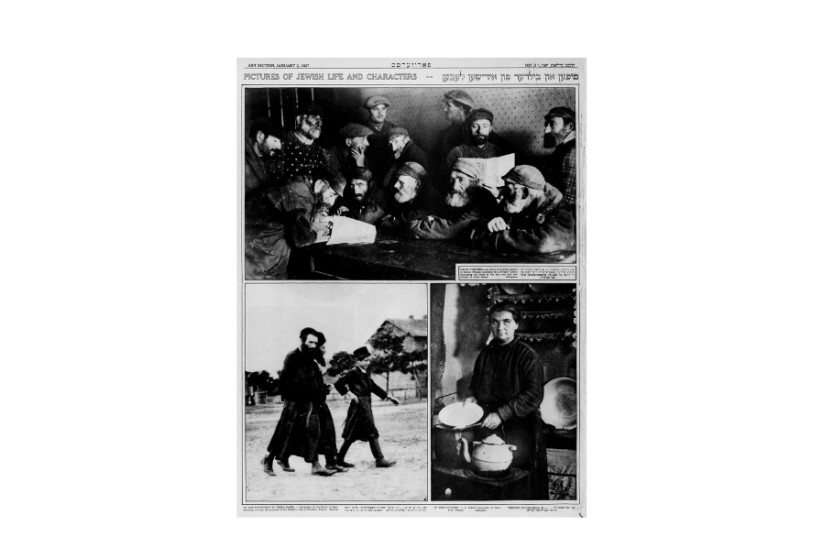“TARBOOT”, a unique international competition, has been officially launched. Its goal: To encourage innovative initiatives and spur the development of solutions for technological challenges that will enhance the digital presence of cultural heritage treasures, making them an integral and meaningful part of our lives – and more usable for wide-ranging audiences in Israel and around the world. Introducing this wealth of culture and art into the digital platforms in which we all work and create will turn them into a powerful force for influencing the present and shaping the future.
Did you know that Jewish newspapers used to have a fashion section in the 1920s? Forverts newspaper, known today as the Daily Forward, had a refreshing fashion section that used to photograph clothing by various Jewish communities worldwide.
This one example of a unique historic Jewish item exists at the National Library of Israel, yet it isn’t accessible for most Israelis or Jews around the world. “TARBOOT” wishes to find the most cutting edge and unique ways to make the rich archives of the National Library of Israel - accessible to all.
The competition aims to encourage innovative initiatives and the development of solutions for technological challenges towards enhancing the digital presence of cultural heritage treasures and making them an integral and meaningful part of our lives. Up to three million US dollars will be distributed among the proposals selected for implementation.
An initiative of Yad Hanadiv and a collaboration with the National Library of Israel (NLI), “TARBOOT” (culture in Hebrew) seeks to connect technology talent from Israel and abroad to the worlds of culture and the arts, and situate cultural heritage at the centre of daily life. Entrepreneurs, start-ups, businesses, and organisations are invited to present ideas to make the millions of written, photographed, and filmed items of cultural heritage, collected over decades at the NLI and a host of other heritage centres, more easily available, usable, and meaningful in our contemporary technological world.

The prestigious competition will consist of three different tracks: A general track for companies, organisations, and individuals; a designated track for start-up enterprises; and a category for students. The first prize in each category will be $50,000. In addition, Yad Hanadiv will distribute up to $3 million to proposals found suitable for implementation.
The competition’s juror panel, consisting of experienced and renowned individuals in the fields of technology and the humanities, is chaired by Hannah Rothschild. They include Michael Lynton (Chair, Snap) , Adi Aron Gilat (Head of Strategy at X – formerly Google X), Hussein Agha (Senior Associate at St Antony’s College, Oxford) and Chemi Peres (Managing General Partner and Co-Founder Pitango).
Jury Chair Hannah Rothschild says “The renewal of the National Library of Israel, culminating in a magnificent new building set to open later this year in Jerusalem, represents a deep commitment to the importance of culture and heritage in our lives. As the past few years have underscored, we must find ways for culture and history to thrive in digital as well as physical spaces. New technologies have the potential to revolutionise the way we learn, experience and interact with our culture and those of our neighbours. It’s hard to think of a more important challenge for our times, and we hope this competition will inspire innovators from Israel, the Middle East and the world to address it.“

Noam Nissan, Chair of the National Library’s Committee for Technology and Digital Strategy and Professor of Computer Science at The Hebrew University adds that “This competition calls on applicants to dream realistic dreams about promoting culture through digital channels, in line with the mission of the National Library of Israel: for the benefit of all of the inhabitants of the State of Israel, the Jewish people, and the Hebrew language. Relevant cultural materials can include both traditional materials in Library collections, and new cultural materials from other sources. We trust that the creativity of applicants will allow us all to realise the potential of digital tools to promote culture around the world.”
